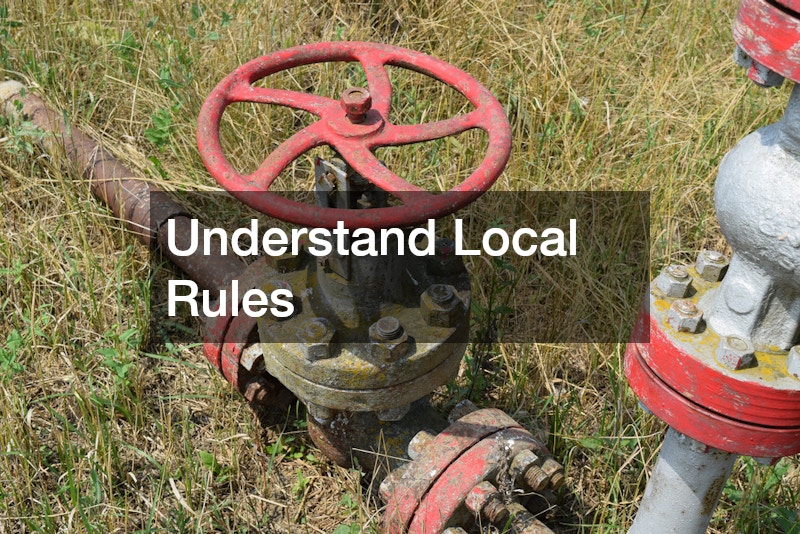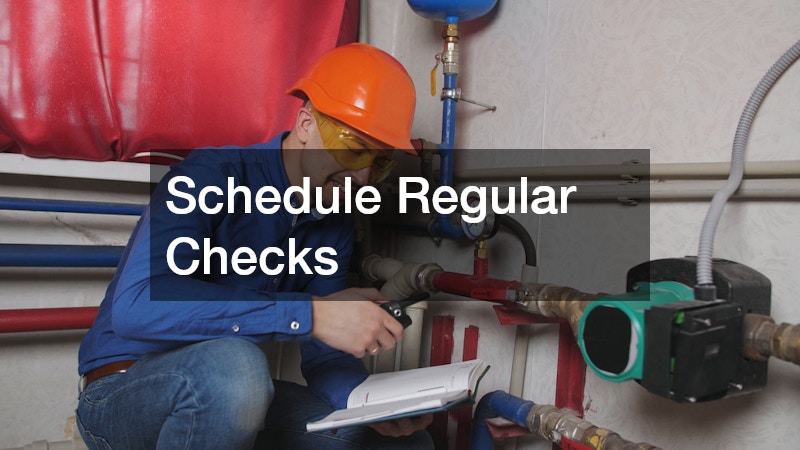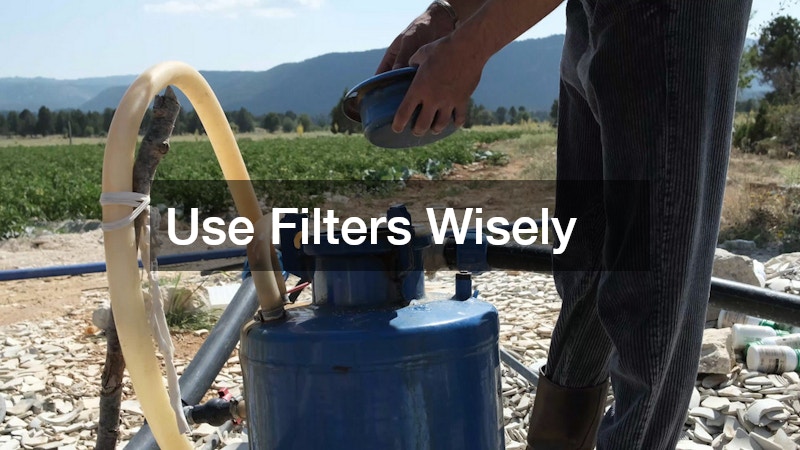
When you live in a rural area like Chester County, maintaining your utilities becomes part of your homeownership responsibilities. Among the most important systems to manage are your home well water system and septic tank. These systems work independently from city water and sewer lines, meaning it’s up to you to ensure they function safely, efficiently, and reliably. While they offer cost savings and self-sufficiency, they also require attention and proper care to avoid problems that can quickly escalate.
Managing these systems can feel overwhelming at first, especially for those new to homes with private wells and septic setups. However, with the right knowledge and proactive habits, homeowners can protect their property, water quality, and health. From understanding how your water source works to recognizing early warning signs of septic issues, staying informed will give you peace of mind and help prevent expensive repairs.
This guide outlines ten practical, easy-to-follow tips to help you manage both your water and septic systems with confidence. We’ll walk you through important considerations like proper system installation, pressure regulation, filtration use, and water conservation. You’ll also learn about ongoing maintenance and how to plan for emergencies before they become crises. Whether you’ve lived in your home for years or you’re preparing to purchase a rural property for the first time, these tips are designed to keep your systems running smoothly. As we explore each section, we’ll also highlight how everyday decisions can impact long-term performance and environmental health.
With a combination of awareness, routine care, and the right service professionals, maintaining these vital systems doesn’t have to be daunting. Let’s dive into these ten essential tips and help you stay on top of your well and septic needs in a practical and informed way.
1. Know Your Water Source

Understanding where your water comes from is the first step in managing a home efficiently. A well-sourced system requires attention to water quality, depth, and location, all of which play a role in how clean and reliable your water will be. Knowing the specifics of your water source allows you to make informed decisions that protect your family’s health and maintain system performance.
In Chester County, homeowners often rely on local water well services to evaluate groundwater conditions and perform inspections. These professionals can assess your well’s depth, water table stability, and contamination risks. If you’re unsure about your well’s history or performance, scheduling an assessment is a smart move for ensuring your home well water system meets safety standards.
Once you’re familiar with your water source and have had it professionally evaluated, you’ll be in a better position to maintain it. Keeping records of service reports, testing results, and any changes in water taste or clarity can help you track issues early. A clear understanding of your well setup is a cornerstone of responsible and effective water management.
2. Choose the Right Setup
Selecting the correct components for your water system setup is critical to achieving consistent water flow and pressure throughout your home. Among the most essential elements is the pump, which is responsible for drawing water from underground into your household plumbing. The right equipment ensures durability, energy efficiency, and a steady supply of water.
Well pump installation should be handled by experienced technicians who understand the needs of your property and household size. An improperly sized pump can lead to system strain or water flow issues, especially during peak usage. To maintain a reliable home well water system, be sure to match pump capacity with well depth and your home’s daily water demands.
Beyond installation, it’s important to consider future service access and system upgrades. Investing in quality equipment from the start minimizes long-term issues and improves performance. Proper installation ensures your pump doesn’t overwork, which extends the life of your overall system and keeps your water supply running efficiently year-round.
3. Understand Local Rules

Before modifying or expanding your water system, it’s essential to understand the legal and environmental regulations in your region. Permits, drilling limits, and contamination safeguards all come into play when managing private wells and septic tanks. Ignoring these guidelines can lead to fines or long-term water safety issues.
Professional well drillers in Chester County are typically well-versed in local zoning rules, geological surveys, and required permits. These experts ensure that any drilling or modifications to your home well water system comply with state and county codes. They also perform site evaluations to protect neighboring properties and natural water sources.
Keeping up with regulations not only protects you legally but also ensures that your system won’t pose health risks or environmental concerns. Working with qualified professionals who follow the rules can provide peace of mind and help you maintain a safe and efficient water system tailored to your specific location and needs.
4. Check System Pressure
Water pressure plays a major role in household comfort and appliance functionality. Low or fluctuating pressure can affect everything from your showers to your washing machine. Within a home well water system, managing water pressure properly requires a stable storage and regulation system to buffer demand and ensure steady flow.
Well tanks are critical components that help regulate water pressure and reduce strain on your pump. By storing pressurized water, they allow the system to deliver a consistent flow without running the pump constantly. A correctly sized and well-maintained tank protects both the pump and your plumbing system, preserving the health of your home well water system.
Over time, pressure tanks can develop leaks, lose air pressure, or wear out internally. Homeowners should routinely check for signs of trouble, such as short cycling (when the pump turns on and off too quickly) or inconsistent water pressure. Regular monitoring and timely replacement of aging tanks can prevent bigger system failures and keep water delivery smooth throughout your home.
5. Schedule Regular Checks

Just like any home system, your well and septic setups benefit from proactive attention and consistent maintenance. Routine inspections help catch minor issues before they become major repairs. A dependable schedule for professional service helps protect your property investment and keeps your home well water system functioning safely and reliably.
Hiring companies that specialize in water management services ensures a comprehensive approach to system upkeep. These professionals check everything from water quality and pump performance to septic tank levels and drain field integrity. Annual inspections are typically recommended, though more frequent visits may be necessary if you have a larger household or notice signs of trouble.
The value of routine maintenance cannot be overstated. Inspections not only catch mechanical issues but also identify bacterial contamination or chemical imbalances before they impact your family’s health. Establishing a relationship with a trusted provider ensures your well water system remains dependable and reduces the risk of costly emergency calls.
6. Prevent Common Leaks
Leaks can cause gradual but significant damage to your water system and the surrounding structure. A leak in any part of your home well water system can lead to water waste, pump overuse, or even contamination. Vigilance and fast repairs are key to preventing minor leaks from turning into major issues.
Local plumbing companies play a vital role in managing and preventing leaks in homes using private well water. These experts are trained to detect leaks in underground pipes, pressure tanks, and household fixtures. They can also test water pressure and recommend upgrades or adjustments that protect your plumbing from wear and tear.
Prevention is always more cost-effective than repair. Homeowners should keep an eye out for signs like drops in water pressure, sudden changes in water bills, or pooling near fixtures. A leak that goes undetected can compromise your well water system, leading to higher energy costs, structural water damage, and system failures.
7. Use Filters Wisely

Filtering your water is one of the best ways to protect your household from harmful contaminants. Unlike municipal water, which is pre-treated before it reaches your home, water from a home well water system may contain sediment, bacteria, or minerals that affect taste, odor, and safety. A good filtration strategy can make a huge difference in both quality and peace of mind.
Installing a water filtration system tailored to your well’s specific makeup helps remove impurities such as iron, manganese, sulfur, or even harmful bacteria. Systems can be installed at the point of entry (whole-house) or specific taps for drinking and cooking. The type and size of filter you need will depend on the results of a professional water test.
Maintenance is key—filters must be changed regularly, and systems require periodic cleaning or servicing to remain effective. A neglected filter can do more harm than good, causing clogs or reducing water pressure. By keeping your filtration system in good shape, you support the overall health of your home well water system and ensure clean, reliable water every day.
8. Conserve When Possible
Water conservation isn’t just about lowering your utility bills—it directly impacts the performance of your septic and well systems. When too much water is used, your septic tank can become overwhelmed, and your well may struggle to maintain pressure or supply. Smart conservation habits help preserve your home well water system and protect your septic infrastructure.
Many septic services recommend water-saving devices such as low-flow toilets, efficient washers, and faucet aerators. These tools reduce the volume of water entering both your septic system and the draw on your well. Spreading out laundry loads, fixing leaks promptly, and avoiding unnecessary water use are all practical strategies that make a big difference.
Conserving water also reduces wear on your pump and pressure tank, extending their lifespan. Additionally, keeping water usage within safe limits minimizes the chance of solids reaching your drain field. A well-balanced approach to water usage is one of the simplest but most powerful ways to support the long-term reliability of your home well water system.
9. Watch for Drain Signs
Monitoring how your home drains can reveal a lot about the health of your septic system. Slow drains, gurgling toilets, or unpleasant odors often indicate a problem with your septic tank. These issues, if ignored, can quickly escalate into serious damage that also puts your home well water system at risk of contamination.
Regular septic tank service helps identify issues like high sludge levels, failing baffles, or clogs before they impact the entire system. Professionals use tools to inspect tank contents and assess whether pumping, repair, or more frequent maintenance is needed. Staying on top of these services ensures your system operates safely and efficiently.
Don’t wait for an obvious failure to call for help. Homeowners should familiarize themselves with the early signs of septic trouble and act quickly when problems arise. When properly maintained, your septic system complements your well water system rather than threatening it, making both more reliable and effective for the long haul.
10. Plan for Emergencies
Even with diligent care, unexpected issues can arise that disrupt your water or waste systems. Power outages, flooding, or equipment failures can compromise your home’s safety and sanitation. Having an emergency plan in place ensures you’re ready to respond quickly and minimize damage to your home well water system.
One of the most overlooked risks is a full or damaged septic tank during a major storm or extended power loss. Without electricity, your pump won’t draw water, and septic components like lift stations won’t function. Knowing how to shut off your pump or water supply and having backup water sources can be crucial in these situations.
Developing an emergency response plan tailored to your home’s layout and systems gives you control during a crisis. This plan should include contact information for service professionals, an understanding of where your shutoff valves are located, and a schedule for periodic inspections. Preparing ahead of time protects your property, health, and the functionality of your well water system when the unexpected strikes.
Preventing and Maintaining
Managing a well water system and a septic tank may seem intimidating at first, but with a solid strategy and regular attention, homeowners in Chester County can enjoy safe, self-sufficient living. These two systems are vital to your household’s daily function, and understanding how they interact is key to long-term success. By addressing water quality, pressure regulation, equipment maintenance, and septic awareness, you lay the groundwork for efficient operation and healthier living conditions.
Each of the ten tips in this guide plays a specific role in the care and reliability of your home’s essential systems. From choosing proper installations and filtration methods to responding quickly to signs of trouble, proactive habits help prevent costly repairs and disruptions. By investing in quality service and staying informed about local guidelines, you position yourself to handle both routine upkeep and emergency challenges with confidence.
The most important takeaway is that managing these systems isn’t just about fixing problems. It’s about preventing them. With a clear understanding of your home well water system and the unique needs of a septic setup, you can take control of your home’s infrastructure. With professional help where needed and mindful day-to-day practices, your property can thrive for years to come.



